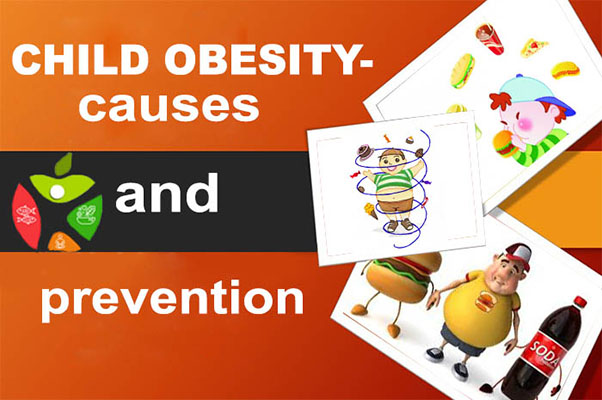CHILD OBESITY- causes and prevention
Researches show that urban kids as young as 7 years old are facing the threat of obesity and in turn becoming prone to heart diseases.
One, out of 4 kids, is obese and faces the threat of various chronic diseases such as diabetes, dyslipidemia and heart disease. Due to no or scarce physical activity and excessive intake of processed and fats foods with high amounts of saturated fats and simple carbohydrates urban children are more prone to increased blood sugar and cholesterol levels and also cardiac arrests at a young age. Here are some of the causes and effects of the causes of childhood obesity along with what to change some tips to prevent it.
Sugary beverages and high fat snacks
Consumption of sugary beverages increase BMI by small amounts over the years. Sugary drinks are less filling than healthy foods like fruits and can be consumed quicker, which results in a higher caloric intake. Same is the case with fatty snacks such as chips, baked goods, and candy.
Portion size
Consuming large portions, in addition to frequent snacking on high caloric foods, contribute to an excessive calorie intake.
Activity level
One of the factors that is most significantly linked to obesity is a sedentary lifestyle. Most children in the urban areas either do not have access to open grounds or are much attuned to watching television or playing indoors on computers, etc.
While extensive television viewing and the use of other electronic media has contributed to the sedentary lifestyles, other environmental factors have reduced the opportunities for physical activity.
Family:
Family influences the eating habits of the kids and has also been associated with the increase of cases of obesity. The types of food available in the house and the food preferences of family members can influence the foods that children eat.
Also, as most women these days are working out of the house, eating foods from that are processed and packaged contribute to increase in weight.
Psychological factors
Depression and anxiety Self-esteem
Comparing overweight/obese children with normal-weight children in regards to self-esteem have been mixed. It is found that obese children have lower self-esteem while others do not.
Childhood obesity can profoundly affect children’s physical health, social, and emotional well-being, and self-esteem. It is also associated with poor academic performance and a lower quality of life experienced by the child.
Traits associated with eating disorders appear to be common in adolescent obese populations, particularly for girls.
Medical consequences
Childhood obesity has been linked to numerous medical conditions. These conditions include, but are not limited to, fatty liver disease, sleep apnea, Type 2 diabetes, asthma, hepatic steatosis (fatty liver disease), cardiovascular disease, high cholesterol, cholelithiasis (gallstones), glucose intolerance and insulin resistance, skin conditions, menstrual abnormalities, impaired balance, and orthopedic problems.
Socio-emotional consequences
In addition to being implicated in numerous medical concerns, childhood obesity affects children’s and adolescent’s social and emotional health.
Academic consequences
Childhood obesity has also been found to negatively affect school performance. They are also more likely to miss school more frequently, especially those with chronic health conditions such as diabetes and asthma, which can also affect academic performance.
Easy Tips to prevent childhood Obesity:
- Encourage healthy eating habits. Small changes can lead to a recipe for success!
- Make favorite dishes healthier. By including more of healthy choices such as multi grain bread in place of white or brown bread, more of vegetables and fresh fruits to be added to daily diet in place of sugary juices.
- Remove calorie-rich temptations. Do not keep the packaged processed foods in the house, instead stack the refrigerator with loads of fresh fruits and vegetables and keep roasted snacks at hand to replace the high fat varieties
- Help our kids understand the benefits of being physically active. The parents need to inculcate in the kids the habit of remaining physically active and participating in various sports. This will not only improve their physical but also affect their mental and emotional well being
- Help kids stay active. By participate in at least 60 minutes of moderate-intensity physical activity most days of the week, and every day if possible. Children normally follow their parents, so it is a good idea for parents also to increase outdoor times and involve in some kind of physical exercise on a daily basis.
- Reduce sedentary time: Limit “screen time” (TV, video games, Internet) to not more than one hour a day.
- Last but most important include plenty of sugar free liquids in the daily diet such as lemon water, salted butter milk, fresh soups, etc.
Free Consultation with Top : Nutritionist Near Me

